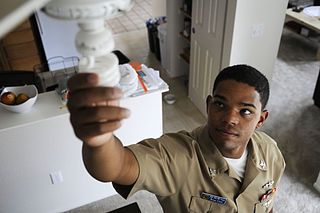From Guest Blogger Lance Trebesch: 3 Conservation Steps Any Small Business Can Take
When entrepreneurs set out to create businesses, we are for the most part aiming to make a difference. Whether that’s a difference in a small community, an industry, or a market segment, to entrepreneurs it’s all about making that impact. But sometimes we think too small in terms of our reach. However small, businesses have an opportunity to make a worldwide impact.
In addition to making our intended impacts, small business owners also make an impact on the environment. It can be difficult to see these effects, because they happen so gradually. But that doesn’t make entrepreneurs any less responsible for the effects they do have on the environment, however little — especially because there are means for all entrepreneurs to create positive environmental impacts.
What can companies do to minimize their damage to the environment that we all share? It starts with product delivery.
Carbon Neutral Shipping
While some businesses deliver no physical goods, many companies ship products all across the country and world. Each time these businesses put a package on a truck or a plane, they’re creating a carbon footprint. While it is an inevitability of doing business, there are ways to control the degree of environmental impact.
UPS has a carbon neutral shipping program, wherein they purchase carbon offsets. These projects actively replenish the environment that we harm when we ship goods by land, and especially by air. Speaking of, that’s another way businesses can pitch in. While air travel is convenient, and in many cases necessary, shipping by ground whenever possible is much more environmentally friendly.
When companies can do business with shippers that share the same environmental values, each transaction feels better. We certainly ship our tickets with more confidence thanks to UPS’s program.
Product Materials
As our business name suggests, we deal with the printing of physical tickets. In an age where digital tickets are becoming more common, being in the business of printing physical tickets might seem inherently unfriendly to the environment. We do feel strongly that well-designed and presented tickets add a certain element to events that digital tickets can’t yet accomplish. So how do we balance our desire for presentation with our concerns for the environment?
Companies that produce physical products can — and if I may go out on a limb, should — take steps to ensure that those products are as environmentally friendly as possible. We print all of our tickets on 100 percent recycled paper, free from chlorine bleach. For our ink, we use dry ink toner cartridges from Xerox that are non-toxic. The paper can even be re-recycled, furthering the effort.
Operations
Here’s where things get a bit tougher. Not every company is as fortunate as we are to be located near a wind farm. We happen to be near one that powers our entire facility. Businesses that are this fortunate should look into taking advantage.
One trend that could emerge in the next few years is the solar data center. Nearly every small business needs a data center of some sort, and data centers consume massive amounts of electricity. We can cut down on that consumption by choosing solar-powered data centers are more and more are converted.
There might not be many solar powered data centers currently, but there are DC power data centers. These consume less electricity than conventional AC power data centers.
Again, every little bit helps. When it comes to electricity consumption, this small consideration can indeed make a big difference.
Small businesses have obligations to their customers and their investors, but they also have obligations to nobler causes. Many small businesses take, take, take from the environment without giving a thought to how they can replenish it. That’s unfortunate, because reducing waste and consumption has become easier in modern times. It might be slightly inconvenient, and it might subtract from a fully optimized bottom line, but it’s something that all small businesses should partake in.
— Lance Trebesch is the CEO of TicketPrinting.com & Ticket River which offers a variety of event products and ticketing services. After nineteen years of Silicon Valley experience, Lance found the key to happiness is helping customers worldwide beautify and monetize their events with brilliant print products and event services. Listening to his customers and learning about how they plan their events – ranging from concerts to fundraisers has helped him gain insight and expertise on how to host a successful event that he is always eager to share.


Several times I have received small items in large boxes containing in incredibly large amount of unnecessary packing material. Surely it would be less wasteful to pack items in as small a box as possible that would provide adequate protection.